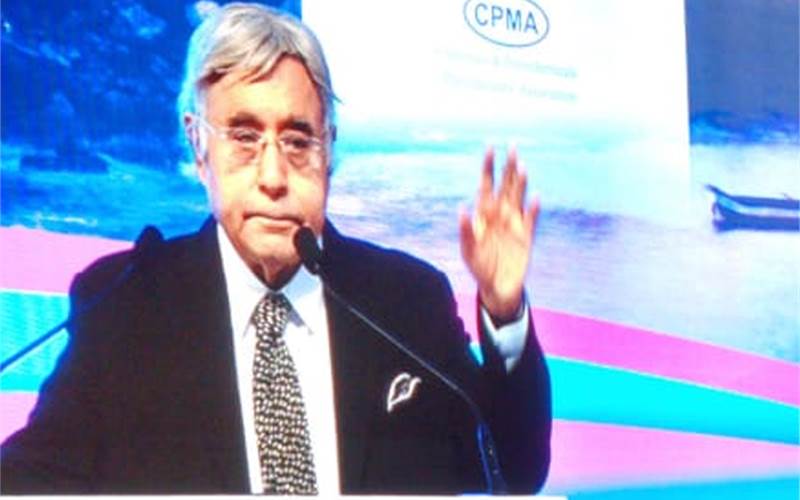Ajit Singh: There is more to pharma than sustainability
Ajit Singh, chairman and co-founder, ACG Worldwide, shares the nitty gritty of of packaging films for pharma and his views on sustainability
11 Sep 2019 | By PrintWeek India
Speaking at the 8th Specialty Films and Flexible Packaging Global Summit, Ajit Singh said that, solid dosages constitute 70% of all pharma production and these are usually packed in blister packing films. The raw materials and processes that go into the manufacturing of such films need to be controlled to prevent any microbial contamination. “A preferred pharma supplier” is one who produces only pharmaceutical films and all operations concerned with manufacturing are carried out under one roof.
Highlighting the advantages, Singh added, pharma films are growing at a faster rate than other segments of packaging films; also they don’t suffer from cyclic variations in demand. However, capital investment is high and one has to have a complete range of flexibility in order to be able to supply large batches for products such as patented drugs as well as small batches for generics and nutraceuticals. He added, it is important that we offer availability with quality and affordability.
Singh explained, as pharmaceuticals are concerned with the health of the masses, the government regulates its prices; so to ensure stable pricing the pharmaceutical companies like to enter into multi-year contracts with their suppliers. The problem for pharma packaging film manufacturers is that they themselves face continuous price variations of raw materials. The prices keep fluctuating month to month, the reasons for which are not easily understood.
On recycling blister films, Singh mentioned that, pharmaceutical blister packing constitutes a base PVC film which is laminated with other substrates to offer protection from moisture and then heat sealed to an aluminium foil. It is almost impossible to separate or delaminate these bonded structures. Further he said, often times when the blister films are discarded the contents of the packs (tablets, capsules) are left inside particularly when medicines expire at home. Singh asked, if the issue of recycling PVC blister films even arises as it forms a small fraction of the PVC used in other industries.
Singh cautioned that moving away from present composition of films used in pharma would require replacement of existing blister packing machinery as the tolerable sealing temperatures of such alternatives is very narrow. Further he stated, such new film compositions would require to undergo rigorous testing for each and every medical formulations; the regulatory authorities would not be able to cope up with such load. He also cited that a few years ago, the European authorities mounted an assault on the blister films but they eventually had to withdraw.
He concluded by asking everyone to reflect upon, whether we would want to have pharma films packaging to be environment friendly at the cost of being life friendly; what would be better for the greater good of mankind.
Founded in 1964, Associated Capsules Group, now known as ACG Worldwide is an Indian multinational engaged in end-to-end manufacturing solutions for the pharmaceuticals industry. It is Asia’s largest consolidated pharma capsule shells, packaging films and pharma machinery manufacturer and the world’s second largest capsule shell maker. It is also the recipient of the prestigious World Star award from the World Packaging Organisation for its innovation in packaging films












 See All
See All